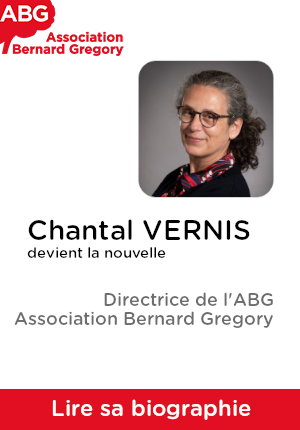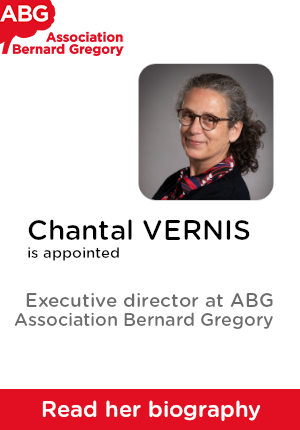A European postdoc and what?
E. Jardin &C. Schoch
Frédérique Donsanti holds a PhD in process chemistry. After working in Italy for two and a half years on a European research project, she returned to France to the research lab at the Ecole Supérieure de Chimie in Paris where she had done her doctorate. Back to square one?1/ Describe your academic career.
I finished my PhD in 2003 and started looking for work in the private sector. I was called for an interview at Saint Gobain and for another one at Michelin. There, the recruiter told me it wasn't the right time for hiring and advised me to go abroad for a year or two. I saw this as an opportunity, and since I have family in Italy, I looked for a postdoc there.
2/ How did you go about your search?
I looked on the Internet. I checked out the Marie Curie European Fellowship site and found out there was a postdoc at the University of Rome. I got in touch with the professor of the research center. He was immediately interested because he knew a little bit about what we did in my Parisian lab.
3/ Did you have to put together an application file?
I sent in a resume and then we exchanged e-mails. I went to Rome for family reasons and took that opportunity to meet the professor. I handed him my publications. We talked about my research and since he had financing for a postdoc, it all worked out. My postdoc started in January 2004 and finished in July 2006.
4/ How did things go when you got there?
I didn't have any trouble adjusting, even if it's not at all the same as in France. On an administrative level, it's pretty hard if you don't know the Italian way of doing things. There's a lot of haggling, you might say.
5/ Did you have any trouble getting health insurance coverage, for instance?
No, because I have an uncle who works for the Italian national health insurance administration, so that was settled in a snap. That's how things work there, if you know someone, it's a cinch. On the other hand, if you don't know what you're doing, it's little more complicated.
6/ What about working conditions?
As far as work goes, I didn't find a huge difference with respect to France. State research centers in Italy aren’t very well endowed. I was hired on a European project with English, French and German labs, which gave me a chance to exchange views with other countries, to see how they function in other places.
7/ And have you’ve kept up the contacts you made through this European project?
Yes, I've had news from other former postdocs, and in fact things are pretty dismal. For instance, there was an Italian PhD who was on a postdoc in Germany. When his Marie Curie fellowship ended, he came back to Rome and couldn't find a job. There was a Swedish woman who was on a postdoc in Paris. She found another postdoc in Germany and I found out that she had had a baby, so she went back to Sweden and she doesn't have a job. There was an Irish PhD who was with me in Rome, finally I think she found something in Ireland. There was another French PhD who was in England. Like me, he went back to his lab in France. There was another Frenchman who is now at the CEA with a fixed one-year contract. There was a Polish PhD who stayed in France because her short-term contract was renewed for a year. She doesn't really know where she’ll wind up next. Sure, the picture isn’t very bright, but I get the feeling it illustrates the situation of young chemists right now.
8/ This whole group of young researchers was financed by Marie Curie fellowships?
Yes, all of them. They’re designed for European projects for young researchers. These projects are supposed to launch their careers. They’re a great opportunity for exchanges among young researchers, but as for getting a job after the postdoc, I can’t say that they help much.
9/ And for you, how did things go when you came back to France?
My contract ended in July 2006 because my Italian boss was unable to find more funding to renew my contract. My boss in Paris was looking for someone for a new European project and asked me if I was interested. Since I didn't have anything else in sight, I accepted, but the return was difficult. I went back to live with my parents because I only had a one-year contract. I'm paid by the CNRS out of funds for the European project I'm working on.
10/ Were you hired because of your previous area of expertise?
Yes and no. I still work on photovoltaics as I did during my PhD and besides, my French boss appreciates the fact that I went to Rome to work in electrochemistry because I gained new skills. What I did in the lab in Rome is very useful for my new project.
11/ How do you see things when your contract expires?
I’d like to work in the public sector and given my itinerary, I think I'll have better chances in the public than in the private sector. I'm also looking in Italy. If possible, I'd like to go back there.
12/ With a researchers’ position? How does it work there? Do they recruit by exam?
I already took a recruitment exam when I was in Italy. The procedure is the same as in France. There are two written exams on subjects that deal with the research topic the job opening involves. Applicants are ranked according to their scores on the written exams and then, there's an oral. Lastly, they look at your resume. For the exam that I took, there was one position... for 300 applicants. I knew that the position had been announced for someone in-house.
13/ How are recruitment campaigns conducted?
It really varies according to the institution, depending on the position. It's not centralized like it is in France. You have to look at the Internet websites where state exams are announced, and gradually, positions open up. You have to send in applications and take written and oral exams. But you can't be in a hurry. For the competitive exam that I took, I waited for the (negative) answer for a year.
More information about ABG?
Get ABG’s monthly newsletters including news, job offers, grants & fellowships and a selection of relevant events…
Discover our members
 CESI
CESI  Tecknowmetrix
Tecknowmetrix  MabDesign
MabDesign  Institut Sup'biotech de Paris
Institut Sup'biotech de Paris  ADEME
ADEME  ASNR - Autorité de sûreté nucléaire et de radioprotection - Siège
ASNR - Autorité de sûreté nucléaire et de radioprotection - Siège  Groupe AFNOR - Association française de normalisation
Groupe AFNOR - Association française de normalisation  Nokia Bell Labs France
Nokia Bell Labs France  CASDEN
CASDEN  TotalEnergies
TotalEnergies  ANRT
ANRT  Généthon
Généthon  MabDesign
MabDesign  PhDOOC
PhDOOC  SUEZ
SUEZ  Ifremer
Ifremer  ONERA - The French Aerospace Lab
ONERA - The French Aerospace Lab  Laboratoire National de Métrologie et d'Essais - LNE
Laboratoire National de Métrologie et d'Essais - LNE  Aérocentre, Pôle d'excellence régional
Aérocentre, Pôle d'excellence régional








